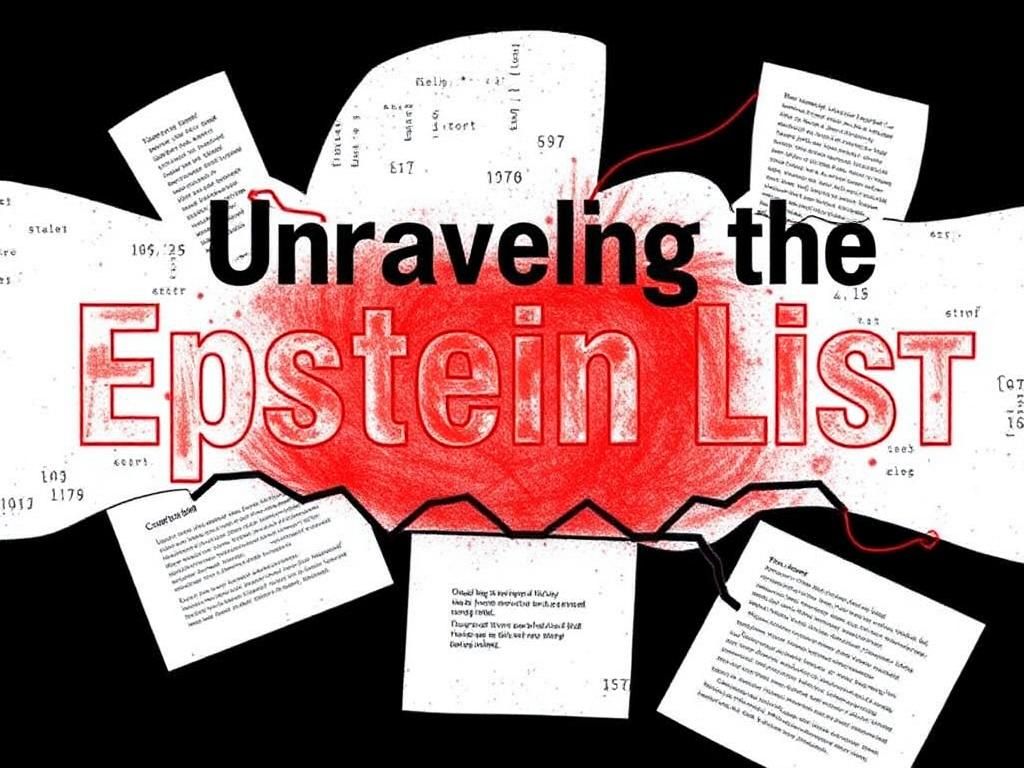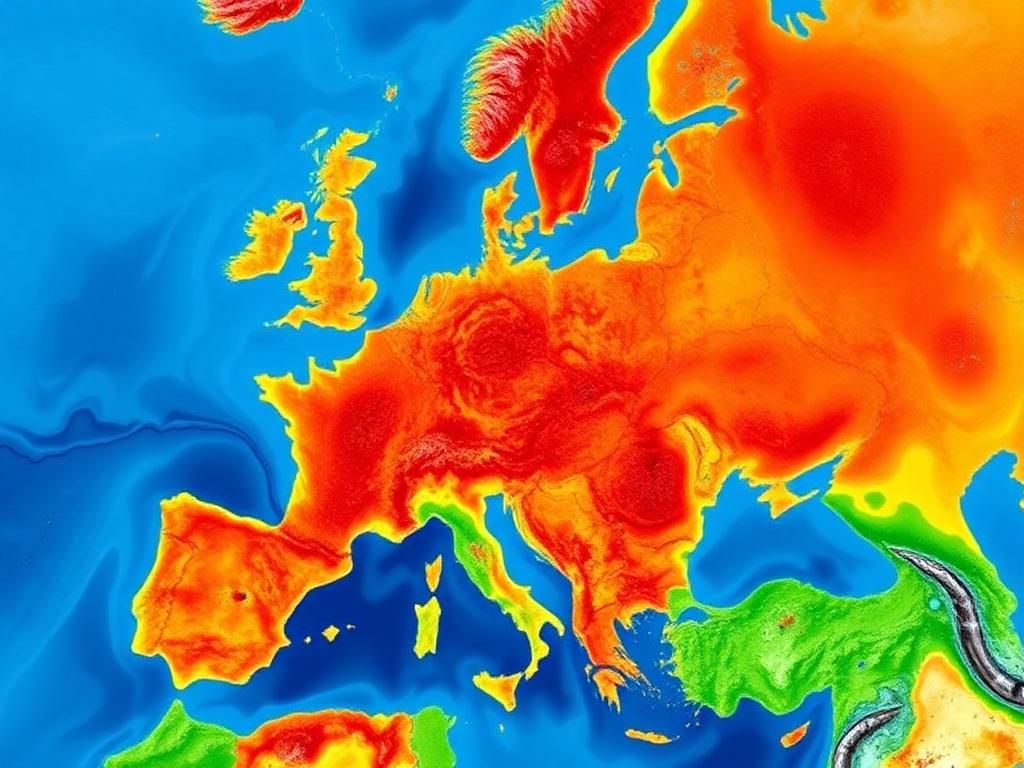The “Epstein List” refers to a collection of names associated with Jeffrey Epstein, a financier and convicted sex offender whose high-profile connections and illicit activities have raised critical discussions about power, accountability, and the dark corners of influence in society. Jeffrey Epstein’s connections extended to some of the most powerful figures around the globe—politicians, celebrities, and business leaders—making the topic not just a criminal case but a matter of societal significance. The revelations surrounding him prompt a deeper examination into the entangled issues of trafficking, exploitation, and the protective mechanisms that shield powerful individuals.
Who Was Jeffrey Epstein?
Early Life and Education
Epstein was born in 1953 in Brooklyn, New York, into a middle-class family. He showed early signs of intelligence and ambition, excelling academically at Lafayette High School before pursuing higher education at Cooper Union and later at New York University. He left college without completing his degree but secured a job at Bear Stearns, which was the starting point of his rise in finance.
Rise to Wealth and Notoriety
Through a combination of intelligence, charisma, and connections, Epstein built a formidable financial empire managing investments for the rich and famous. His client list included high-profile individuals, notably the elitist circles of finance and politics. Epstein’s ability to network effectively allowed him to exert considerable influence, which many believe contributed to his criminal activities.
Criminal Activities
In 2005, allegations against Epstein began to surface, leading to a police investigation that uncovered a myriad of accusations ranging from sexual abuse to sex trafficking. His 2008 conviction for soliciting a minor for prostitution highlighted his exploitative practices, which many critics argue were insufficiently punished given the scale of his offenses. The consequences of his actions were profound, impacting numerous lives and igniting a broader conversation about consent and exploitation.
Understanding the Epstein List
What is the Epstein List?
The Epstein List refers specifically to the names that appeared in various documents and testimonies related to Epstein’s life, particularly those considered to be associated with his illicit activities. The significance of this list lies in its potential to shed light on those who either directly participated in or turned a blind eye to Epstein’s operations. It raises critical questions about accountability in various sectors of society.
Sources of the Epstein List
The Epstein List has been compiled from various sources, including legal documents, testimonies from survivors, and investigative journalism. Notably, materials obtained from lawsuits and court proceedings have unveiled a clearer picture of those involved. Major media outlets have played a crucial role in disseminating information, helping to keep public interest alive.
Types of Individuals on the List
The individuals featured on the Epstein List are diverse, encompassing a wide range of categories:
- Celebrities and public figures: Various actors, musicians, and other entertainment industry members with ties to Epstein.
- Politicians and influential figures: Noteworthy names from various political backgrounds and affiliations.
- Business leaders and financiers: High-profile individuals from the finance sector whose careers connected with Epstein.
Repercussions of the Epstein List
Legal Implications
The Epstein List has led to numerous lawsuits and legal actions against listed individuals, contributing to ongoing investigations into their conduct. The implications of being named on the list can range from reputational damage to potential criminal charges, raising concerns about justice and accountability within elite circles.
Social and Political Responses
The emergence of the Epstein List has sparked intense public reaction, with calls from activists and the general public for accountability from those mentioned. Social media campaigns and protests have focused on demanding justice for victims, influencing perceptions of various political figures and institutions associated with Epstein.
Media Coverage and Public Discourse
Media outlets have treated the Epstein List with a mix of seriousness and sensationalism, leading to varied public discourse. Coverage has ranged from straightforward reporting aimed at exposing criminal activities to sensational portrayals that can sometimes detract from the gravity of the issue. The New York Times and other credible sources have published extensive investigations revealing the intricate web of relationships tied to Epstein.
Theories and Speculations Surrounding the Epstein List
Conspiracy Theories
The Epstein case has birthed numerous conspiracy theories, some of which suggest an orchestrated cover-up involving powerful elites. While some aspects of these theories invoke legitimate questions about power dynamics, many are built on speculation and lack evidence. Scrutinizing the credibility of these theories is essential to understanding the broader narrative.
The Role of Power and Influence
The Epstein List underscores the intricate relationship between power and accountability. The protection of influential individuals and the status quo raises significant questions about the justice system’s ability to hold elite figures accountable for their actions. The dynamics of power and privilege often result in the ability to escape scrutiny.
Moving Forward: The Epstein List and Broader Implications
Societal Impact
The Epstein saga has had a transformative influence on legislation regarding trafficking and abuse, pushing lawmakers toward enacting stricter laws. Furthermore, it has altered public awareness and attitudes concerning victimhood, contributing to ongoing discussions about consent and empowerment in communities globally.
Continuing Dialogue
The persistence of dialogue surrounding the Epstein List is crucial for social change. Engaging in continuous conversations about sexual exploitation and systemic abuse fosters awareness and informs future advocacy efforts aimed at supporting survivors and preventing future offenses.
Table Heading: Key Individuals Associated with Jeffrey Epstein
| Name | Profession | Connection |
|---|---|---|
| Ghislaine Maxwell | Socialite | Close associate and co-conspirator |
| Bill Clinton | Former President | Reported visits to Epstein’s private island |
| Prince Andrew | Royalty | Accused of sexual involvement with a minor linked to Epstein |
| Donald Trump | Businessman/Former President | Knew Epstein through social circles but distanced himself |
| Les Wexner | Businessman | Financial ties and property sales to Epstein |
FAQs
1. What is the Epstein List?
The Epstein List is a compilation of names linked to Jeffrey Epstein, derived from legal documents and testimonies regarding his criminal activities.
2. Why is the Epstein List important?
The Epstein List is significant as it highlights issues of power, accountability, and trafficking, prompting discussions on the integrity of high-profile individuals.
3. How did Jeffrey Epstein make his money?
Epstein made his wealth primarily through managing wealth and investments for wealthy clients, utilizing his financial acumen and connections.
4. Who are some notable figures on the Epstein List?
Notable figures include politicians like Bill Clinton and Prince Andrew, as well as prominent business leaders and celebrities.
5. What are the legal repercussions for those mentioned on the Epstein List?
Individuals listed may face lawsuits, criminal investigations, and societal backlash, depending on the extent of their involvement in Epstein’s activities.
6. How has the public reacted to the Epstein List?
Public reaction has included outrage and calls for accountability, leading to social movements focused on supporting victims and demanding transparency.
7. Are there conspiracy theories related to the Epstein List?
Yes, several conspiracy theories have arisen, some suggesting cover-ups involving powerful individuals; however, many lack credible evidence.
8. What impact has the Epstein List had on legislation?
The revelations surrounding the Epstein List have prompted lawmakers to push for stricter trafficking and abuse legislation.
9. What role did the media play in bringing attention to the Epstein List?
The media has extensively covered the Epstein List, revealing connections and sparking public discourse about the implications of Epstein’s actions.
10. How do discussions around the Epstein List affect society moving forward?
Continuous dialogue surrounding the Epstein List encourages awareness and advocacy for victims of sexual exploitation and systemic abuse, fostering societal change.


